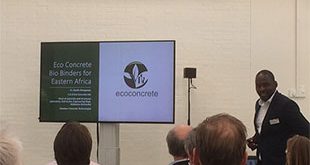Although it’s worth parsing Trump’s campaign rhetoric for clues about the future, it’s important to remember that his administration’s approach to Africa will likely be determined largely by the executive agencies — primarily the departments of State and Defense, the U.S. Agency for International Development, the Office of the U.S. Trade Representative, and the intelligence community — as well as interested members of Congress from both parties.
Since the president-elect has demonstrated little interest in Africa, his cabinet secretaries will probably play an overarching role in setting policy while officials even further down the chain — the assistant secretaries and deputy administrators with specific Africa responsibilities — will do the critical work of matching broad policy to African realities.
Even further from Trump’s inner circle, the U.S. ambassador in each African country will be the administration’s advocate as well as its eyes and ears. In sub-Saharan Africa, ambassadors are usually career members of the U.S. Foreign Service. Political appointees from outside the service are common only in South Africa, Tanzania, and sometimes Mauritius. (Many Africa posts are designated as “hardship” and are hence unattractive to nonprofessionals.)
All ambassadors, whether career or political, are usually required to submit a letter of resignation on Inauguration Day. Previous administrations have declined the resignations of career diplomats while often accepting those of political appointees, especially when the new president comes from a different party. It’s impossible to say for sure if Trump will observe this tradition. If Trump administration insiders perceive the Foreign Service and others with foreign-policy experience as part of the “foreign-policy establishment” he ran against, he may well make more political ambassadorial appointments in Africa. Then again, because Africa is likely to fly under the administration’s radar, there may be more continuity of personnel and policy there than in other parts of the world, such as the Middle East, Russia, and China.
All of this suggests that U.S. policy toward Africa is unlikely to change dramatically. And in many ways, President Trump’s relative lack of interest in the continent is consistent with both his predecessor and his opponent during the general election. Trump never mentioned sub-Saharan Africa during the presidential debates, but neither did Hillary Clinton. Likewise, many Africans expected Obama’s 2008 election to catapult Africa up the list of American priorities. Certainly, there were Obama administration initiatives, notably Power Africa and the Young African Leaders Initiative, which aims to support the next generation of democratic leaders. But they were relatively modest in size — smaller than George W. Bush’s PEPFAR initiative to fight HIV/AIDS, his Millennium Challenge Corporation, or AGOA, which was put in place during the presidencies of Bush and Bill Clinton.
With Trump in the White House, we’re unlikely to see any ambitious new Africa-focused initiatives anytime soon. Indeed, for American friends of Africa, the hope must be that the Trump administration will adopt the watchword of “first, do no harm.” Nevertheless, policy is made and implemented by individuals within the bureaucracy. Those individuals are unlikely to change overnight, except at the very top. One man’s Twitter feed is not policy.
****
Source: Foreign Policy Magazine
 The Independent Uganda: You get the Truth we Pay the Price
The Independent Uganda: You get the Truth we Pay the Price



